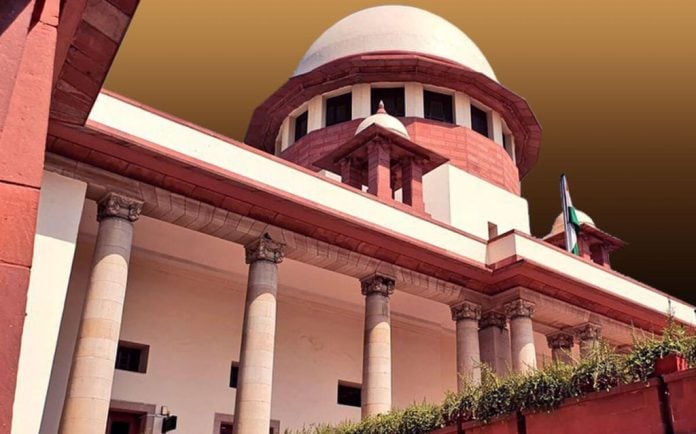The decision to grant 10 percent Economically Weaker Section (EWS) quota in admissions will not impact the availability of seats for the general and reserved categories because 2,13,766 additional seats will be added to those already present in higher educational institutions, the Central government told the Supreme Court on Tuesday.
Appearing for the Union of India, Solicitor General Tushar Mehta apprised the five-Judge Constitution Bench that the government had given Rs 4,315 crore to the Central Higher Education Institutions for the development of additional infrastructure, to meet the demand.
Headed by Justice S Abdul Nazeer, the Bench comprised of Justice Dinesh Maheshwari, Justice S Ravindra Bhat, Justice Bela M Trivedi and Justice JB Pardiwala,
Earlier in the day, the Apex Court had reserved its decision on appeals challenging the 10 percent EWS reservation in admissions and government jobs.
The top court of the country had directed the law officer to provide information regarding the number of scholarships available to those pursuing professional courses, including medical and engineering, at the end of the hearing.
While advancing his rejoinder submissions on the seventh day of the hearing which commenced on September 13, the law officersaid that such figures will be needed for Parliament to take action and these issues would not impact the constitutionality of the amendment.
Arguments were further made on behalf of Academician Mohan Gopal, Senior Attorneys Ravi Verma Kumar, P Wilson, Meenakshi Arora, Sanjay Parikh, and KS Chauhan, as well as lawyer Shadan Farasat, against the constitutional amendment.
The Constitutioun Bench was urged by the petitioner to overturn the amendment.
Those arguing against the EWS quota contended that the amended law defeated the idea of creamy layer by excluding the poor who belonged to the Scheduled Castes (SCs), Scheduled Tribes (STs), and Other Backward Classes (OBCs).


